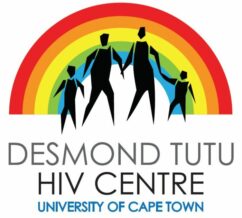In underserved areas where HIV and TB are rife, primary care clinicians increasingly require in-depth knowledge to safely deal with the complex HIV and TB scenarios they encounter daily. However, high patient loads, limited time and geographical distance mean that healthcare workers (HCWs) are often unable to access traditional educational methods.
The Postgraduate Diploma in TB-HIV Management seeks to bridge identified training gaps by targeting primary care and community-level clinicians, as well as other professional HCWs. It provides them with the knowledge and capacity to manage HIV and TB co-infected patients, as well as implement infection control measures in a primary health care (PHC) setting. By targeting rural and hard-to-reach districts and sub-districts, as well as working with PHC facilities across the African continent, this qualification supports the decentralisation of services and helps increase geographic coverage and access to comprehensive prevention, care and treatment services for HIV and TB.
This is achieved by the provision of up-to-date information on diagnostics and treatment policies, as well as providing research understanding and skills for clinicians to report on basic operational research projects, including assessing clinic-recorded data in a PHC setting.
The programme itself was initially offered in a short course capacity and was first rolled out in 2014. It was later developed into an accredited postgraduate diploma programme. Historically, the modality has always been 100% online. In fact, it was UCT Health Sciences’ first ever, entirely online postgraduate diploma. For this reason, it is distinguishable from other programme or course roll-outs in response to what social media has dubbed, “emergency remote teaching” as a result of the COVID-19 pandemic. The first course rolled out in 2014 was preceded by years of preparation and content development; the original team of developers wanted to take full advantage of the affordances and possibilities of a completely online format for otherwise busy clinicians who may not be able to attend face-to-face classes.
We were mindful in the early stages of design and development that careful instructional design and planning, using a systematic model (Branch and Dousay, 2015)[1] would be important for effective online delivery. We consider ourselves different to other online programmes in that we curate unique content by making use of authoring software to ensure maximum student engagement (versus embedding content directly on the Learning Management System/online platform). Using this software, we can include elements of gamification, interaction with content and also create segways for intuitive learning design throughout the online platform. This includes redirects from the online lessons to interactive forum discussions, blog/reflective activities, and the sharing of clinical experiences with peers and the lecturer. There is active instruction online and the programme is self-paced – students are provided with a calendar to help stagger the completion of coursework and receive daily support with their studies on behalf of a dedicated online support team.
In terms of our online communication synchrony, the qualification is both synchronous and asynchronous. Students engage with classmates and their lecturer in a live environment via webinars where aspects relating to the coursework and assignment are covered, as well as receive a clinical lecture towards the end of each course. We make use of an exploratory pedagogy – we promote and nurture a community of inquiry (Garrison and Anderson, 2003)[2] by structuring the programme in such a way that co-curricular engagement and other social supports are organically integrated. This includes facility-based research (a clinical review, analysis of clinical cases, a TB Risk Assessment, and Research Protocol as the various course assignments), a student liaison/class representative for the group, and other social tools such as WhatsApp for the sharing of information and provision of support. In so doing, an ecosystem of learner supports is co-created between course management, lecturers, and the learners themselves. We acknowledge that it is important to support different types of interactions that can be important to the learning process. We recognise learning as both a social and a cognitive process, and not just a matter of the transmission of information.
It is important for prospective students to know that this is not an online course, but an online qualification after which students graduate with a postgraduate diploma. The qualification itself is NQF Level 8 and runs over a one-year period, with two intakes conducted annually – one in January and another in June. It is comprised of four individual courses:
- Clinical Management of TB (24 credits)
- Clinical Management of HIV (24 credits)
- TB/HIV Co-infection Management (37 credits)
- Operational Research (35 credits)
After completion of all four courses, students write two integrated assessments (exams) online.
Intended for healthcare practitioners who want to further their experience with and understanding of the most recent guidelines on the treatment and management of HIV, TB and TB/HIV Co-infection, the programme is clinical in nature. We currently accept students who hold a MBChB, BCur (or 4-year Diploma in Nursing), BCMP or BPharm. Please see our brochure here.
All inquiries can be sent to Melissa May (Programme Manager and Convenor) at: Melissa.May@hiv-research.org.za / melissa.may@uct.ac.za.

[1] Branch, T and Dousay, T. 2015. Survey of Instructional Design Models. Association for Educational Communications and Technology (AECT).
[2] Garrison, D. R. and Anderson, T. 2003. E-Learning in the 21st century: A framework for research and practice. London: Routledge/Falmer

